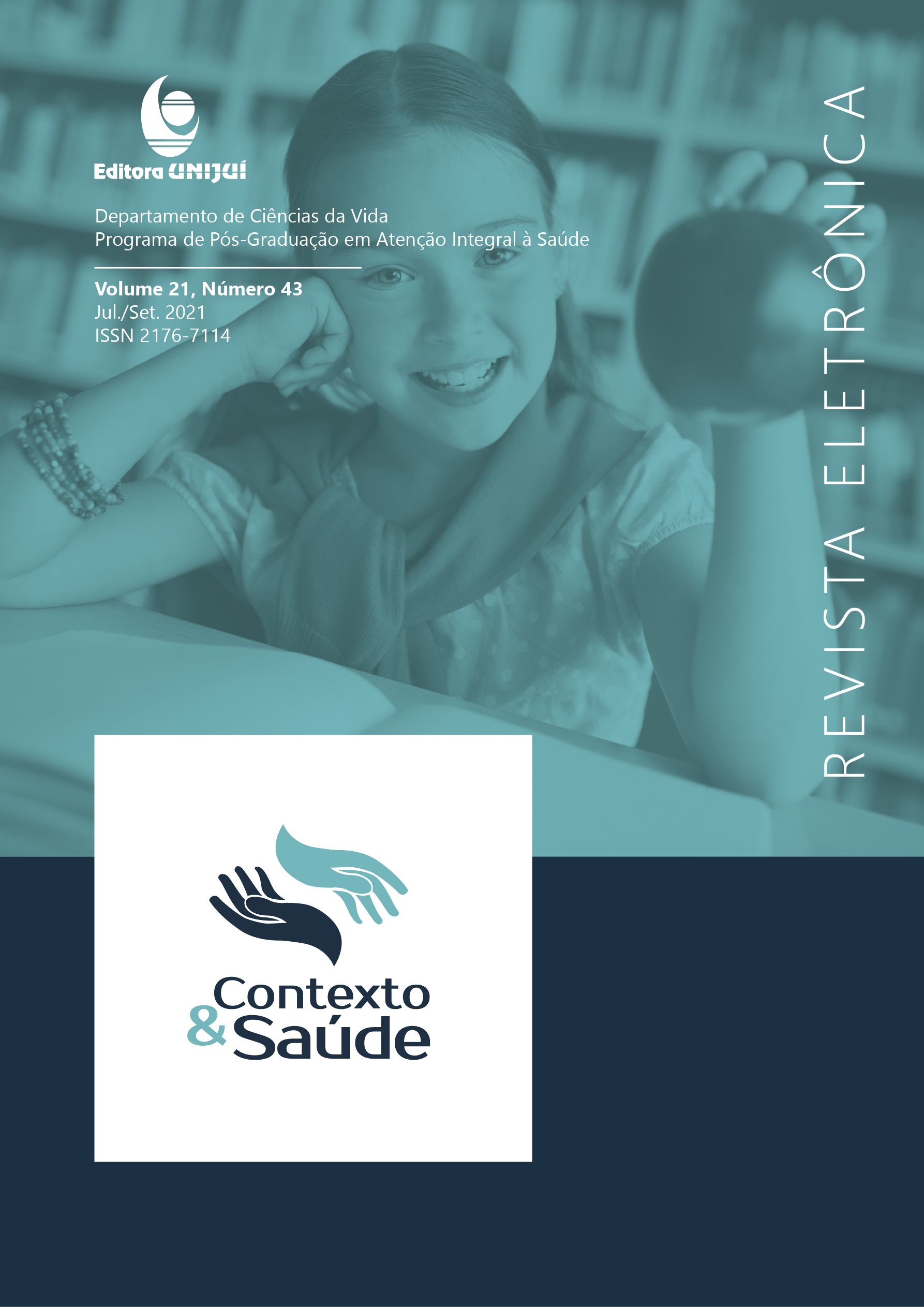EFFECTS OF THE INGESTION OF FLAXSEED (LINUM USITATISSIMUM L.) OIL AND PHYSICAL EXERCISE ON THE BODY WEIGHT, GLYCEMIC AND LIPID PROFILES OF A RAT MODEL DEVELOPED FOR THE STUDY OF METABOLIC SYNDROME
EFEITOS DA INGESTÃO DE ÓLEO DE LINHAÇA (LINUM USITATISSIMUM L.) E EXERCÍCIO FÍSICO EM MODELO ANIMAL PARA SÍNDROME METABÓLICA
DOI:
https://doi.org/10.21527/2176-7114.2021.43.11623Keywords:
Metabolic syndrome, flaxseed oil, physical exercise, glucose intolerance, spontaneously hypertensive ratsAbstract
Metabolic syndrome (MetSyn) is a disorder that involves a series of symptoms that are associated to obesity and metabolic modifications, and increases the risk of developing cardiovascular disease and type 2 diabetes Mellitus. The study of new possibilities of non-drug therapies is fundamental for the primary prevention of MetSyn. The aim of this work was to evaluate the responses of spontaneously hypertensive rats (SHR) with lipid changes induced by the administration of dexamethasone (DEXA) to the ingestion of flaxseed oil associated or not associated with physical exercise regarding the body weight, and glycemic and lipid profiles, in comparison with the drug treatment with metformin. After 24 days of experiment, the 20-week-old animals were submitted to the glucose tolerance test (GTT) and lipid profile evaluation. The results showed that the administration of DEXA in SHR animals promoted a framework of hyperglycemia, dyslipidemia and attenuated the insulin resistance common in the SHR, thus producing an experimental model with several components of the human MetSyn. The effects on weight gain indicated an important preventive action of flaxseed oil and exercise on the weight evolution of SHR-DEXA animals. Furthermore, the ingestion of flaxseed oil associated or not with exercise promoted significant improvements on hyperglycemia and glucose intolerance in these animals. Regarding the lipid profile, the treatments with flaxseed oil and exercise promoted reductions in triglyceride levels and HDL-c increase; however, the combination of these two non-drug interventions was more effective than the isolated treatments.
Downloads
Published
How to Cite
Issue
Section
License

This work is licensed under a Creative Commons Attribution 4.0 International License.
By publishing in Revista Contexto & Saúde, authors agree to the following terms:
The works are licensed under the Creative Commons Atribuição 4.0 Internacional (CC BY 4.0) license, which allows:
Share — to copy and redistribute the material in any medium or format;
Adapt — to remix, transform, and build upon the material for any purpose, including commercial.
These permissions are irrevocable, provided that the following terms are respected:
Attribution — authors must be properly credited, with a link to the license and indication of any changes made.
No additional restrictions — no legal or technological measures may be applied that restrict the use permitted by the license.
Notes:
The license does not apply to elements in the public domain or covered by legal exceptions.
The license does not grant all rights necessary for specific uses (e.g., image rights, privacy, or moral rights).
The journal is not responsible for opinions expressed in the articles, which are the sole responsibility of the authors. The Editor, with the support of the Editorial Board, reserves the right to suggest or request modifications when necessary.
Only original scientific articles presenting research results of interest that have not been published or simultaneously submitted to another journal with the same objective will be accepted.
Mentions of trademarks or specific products are intended solely for identification purposes, without any promotional association by the authors or the journal.
License Agreement (for articles published from September 2025): Authors retain copyright over their article and grant Revista Contexto & Saúde the right of first publication.

